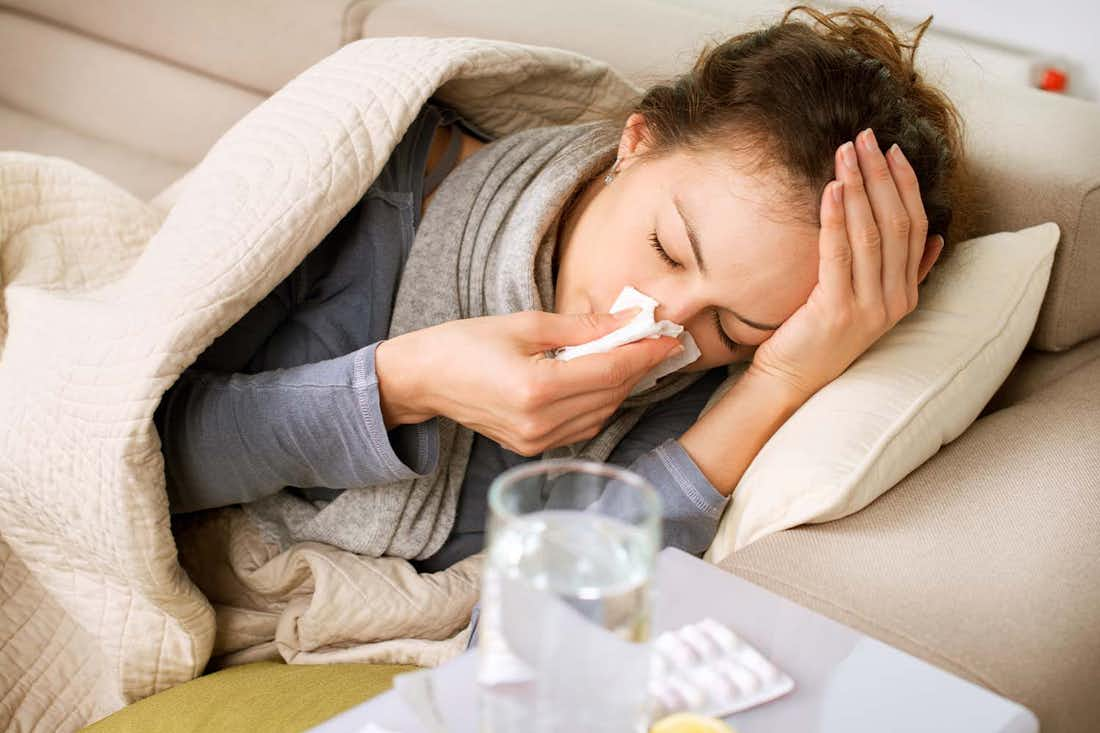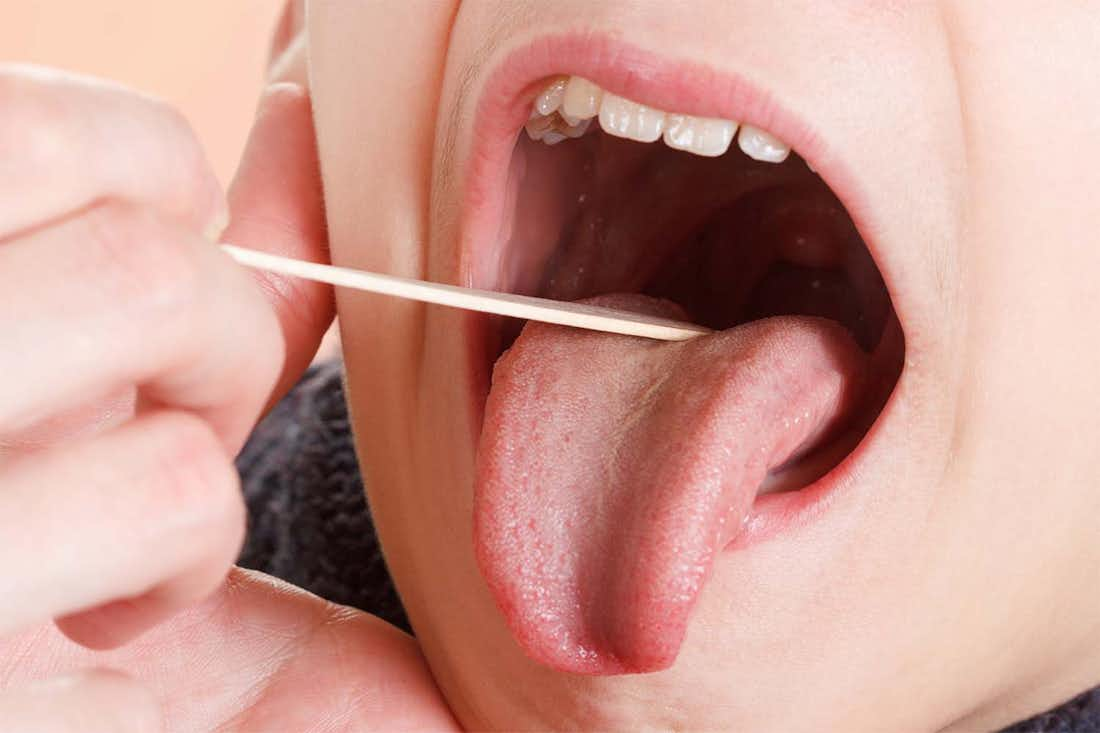Oct 8, 2021
How Long Does Hay Fever Last?
5 minute read
If you’ve ever walked outside and immediately started sneezing and coughing, you’re not going insane. You might have hay fever or allergic rhinitis.
While hay fever has nothing to do with horses, it will probably make you want to gallop away from being outdoors. Seasonal allergies are an extreme inconvenience that can make a beautiful spring or summer day feel like an inundating chore.
If you’re one of the many people who have to endure this problem, you’re probably wondering when the heck it will go away.
Let’s learn how long hay fever lasts, as well as everything else you need to know.
What Is Hay Fever Anyway?
Hay fever may sound like a medieval plague, but it’s nothing more than an allergic reaction. Typically, hay fever is caused by indoor and outdoor triggers like tree pollen, pet dander, dust mites, and more. Hay fever symptoms feel a lot like the common cold, though a virus does not cause it. Hay fever symptoms typically include:
- Nasal congestion
- Runny nose
- Sneezing
- Cough
- Watery eyes
- Itchy or sore throat
- Sinus pressure
- Headaches
If you have asthma, you may also feel a tightness in your chest, difficulty breathing, or shortness of breath.
You can typically tell the difference between allergies and the common cold by the color of mucus that comes out when you blow your nose or cough. Allergy mucus is clear, whereas cold mucus is thick and yellowish.
Why Does Hay Fever Happen?
Things like pollen and pet dander are entirely harmless, right? So why do they make us feel so miserable in the first place?
Hay fever occurs when your immune system identifies a harmless substance, like pollen, as harmful. It then produces antibodies that signal the release of a chemical called histamine into your bloodstream. Histamines are what cause nasal congestion, itchy eyes, and all those other horrible symptoms associated with allergies.
So, When Will Hay Fever Go Away?
We know you probably just scrolled down to this section right away, and we don’t blame you. Hay fever can severely reduce your productivity at work or school while simultaneously shooting down your mood.
The thing is, hay fever can differ for everyone. For some people, it’s seasonal, year-round, or it’s dependent on the situation.
If you have seasonal allergies, you can expect the symptoms to last for the season, about a few weeks or months. However, if your allergic reaction is dependent on exposure to a specific irritant, it might go away as soon as you remove yourself from the allergen.
Generally, seasonal allergies are the most rampant during early springtime when plants are starting to bloom. However, it might be helpful to know that:
- In the fall, ragweed pollen is more common.
- In the summer and late spring, grass pollen is more common.
- In early spring, tree pollen is more common.
While the outlook might seem hopeless, don’t fear! There are a ton of ways that you can alleviate your symptoms and even treat your allergies so that you can live life to its fullest.
Alright, How Do I Make It Go Away Faster?
You probably aren’t looking to wait weeks or months for the symptoms to dissipate on their own. The good news is that relief is in sight. Here are some remedies to start feeling better right away:
Antihistamines
Histamines are the chemicals that cause allergies in the first place, so getting a medication that works to stop them from occurring is essential. That’s exactly what antihistamines are here for.
Antihistamines are over-the-counter medications that inhibit histamines which lessens the severity of your allergy symptoms. You’ve probably seen oral tablets in the store under names like Claritin or Zyrtec.
You can also take antihistamines as a nasal spray, which is especially helpful if nasal congestion or sinusitis are getting you down. Just a couple of sprays into your nostrils can help to open your sinuses and clear everything out.
Find all of your necessities for a low, accessible price at Cleared.
Avoid Triggers
One of the best ways to get rid of allergy symptoms is to lessen exposure to the allergens that are causing your symptoms. You can do this by limiting your time outside during pollen season in months like July or September, frequently washing your linens, or getting an air purifier for your home.
Also, pollen allergies tend to worsen on hot, dry days where the wind can easily carry particles through the air. You may want to try to spend some more time inside on days like these.
Additionally, several things can make hay fever symptoms worsen, so you’ll want to stay away from those. These include:
- Smoke
- Air pollution
- Strong odors
- Aerosol sprays
- Humidity
- Irritating fumes
- Wind
Found Out What You’re Allergic To
You may also be sneezing and coughing at the wrong things. If you find out exactly what you’re allergic to, you can make it easier to learn how to avoid your triggers and counteract their detriment.
You can do this through an allergy test. While you used to have to go to an immunologist to get a series of tests done, you can now do it from the comfort of home. Cleared’s allergy testing kit will screen for over 40 common indoor and outdoor triggers so you can know exactly what’s causing your sniffles.
Allergy Immunotherapy
You’ll never need to worry about how long hay fever lasts if you never even get it in the first place. While traditional allergy medications can nab your symptoms in a pinch, allergy immunotherapy can help tackle the underlying causes and lessen your general symptoms.
Sublingual immunotherapy, or SLIT, is the only FDA-approved at-home treatment for allergies that works by gradually exposing you to an allergen so your immune system can adjust. It’s just a tablet that goes under your tongue -- no need for painful injections or shots. It’s like running .1 mile more every day until you’re finally running a marathon.
You can get a prescription for grass pollen, dust mite, and ragweed pollen allergens today.
Clearing the Air
Hay fever, allergic rhinitis, allergies -- they’re all the same, annoying thing. They can feel like a common cold, but unfortunately, it may last a little longer.
They tend to be seasonal, so it may take weeks or months for exposure to the allergen to dwindle so you can finally feel relief. With that said, things like dust mites or pet dander can be easily avoided, meaning that you can alleviate the symptoms once you remove yourself from them.
You can make your symptoms gradually disappear by taking over-the-counter antihistamines or by trying out allergy immunotherapy. Additionally, take preventative measures to keep your home clean and free of other irritants like mold or dust.
Sources:
Hay fever - Symptoms and causes | The Mayo Clinic
Allergies: Types, Symptoms, Causes & Treatments | Cleveland Clinic



